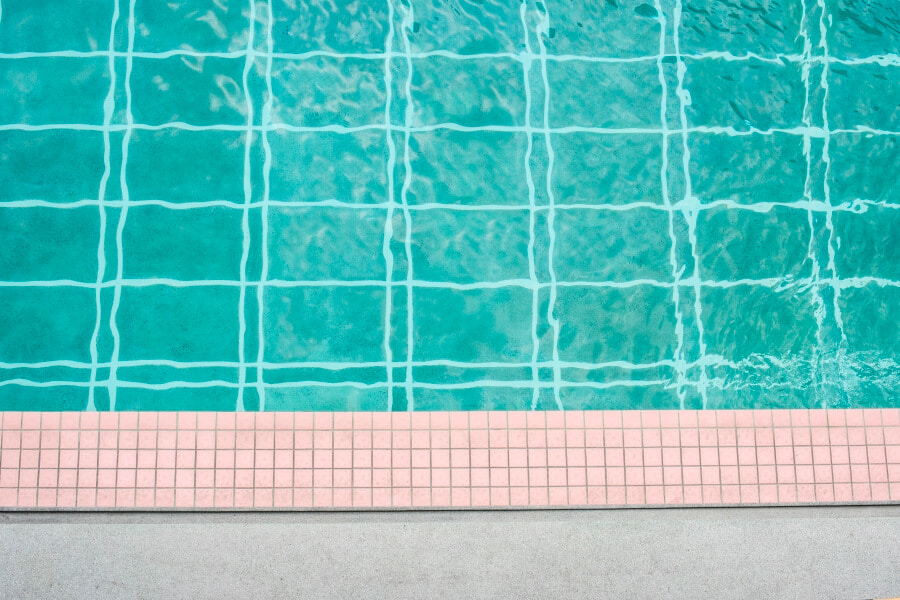In the realm of indoor swimming pool design, every detail counts. From the layout to the lighting, every element contributes to creating a luxurious and inviting space. Among these considerations, the choice of floor tiles stands out as both a practical and aesthetic decision. In this comprehensive guide, we’ll explore the world of indoor swimming pool floor tiles, covering everything from material options to installation tips, helping you make the perfect choice for your aquatic oasis.
Understanding the Importance of Indoor Swimming Pool Floor Tiles:
The floor of an indoor swimming pool is subjected to unique conditions, including constant exposure to water, chemicals, and high foot traffic. Therefore, selecting the right type of floor tiles is essential for ensuring durability, safety, and visual appeal. Additionally, the floor tiles contribute significantly to the overall ambiance of the space, enhancing its beauty and comfort.
Material Options for Indoor Swimming Pool Floor Tiles:
Porcelain Tiles: Porcelain tiles are a popular choice for indoor swimming pools due to their durability, resistance to water, and low maintenance requirements. Available in a wide range of colors, sizes, and textures, porcelain tiles offer versatility and style. They are also resistant to stains, fading, and frost, making them suitable for both indoor and outdoor pool areas.
Glass Mosaic Tiles: Glass mosaic tiles add a touch of luxury and sophistication to indoor swimming pool designs. Their reflective properties create stunning visual effects, especially when illuminated by underwater lighting. Glass tiles are non-porous, making them resistant to water damage and easy to clean. They are available in a myriad of colors, shapes, and finishes, allowing for endless design possibilities.
Ceramic Tiles: Ceramic tiles are a classic choice for indoor swimming pools, prized for their affordability, durability, and wide range of design options. They come in various sizes, colors, and patterns, allowing you to customize the look of your pool area to suit your taste. Ceramic tiles are resistant to water, stains, and fading, making them a practical choice for high-traffic areas.
Natural Stone Tiles: Natural stone tiles, such as granite, marble, and travertine, add a touch of elegance and sophistication to indoor swimming pool designs. Each piece of stone is unique, creating a one-of-a-kind look for your pool area. While natural stone tiles require regular sealing to prevent water damage and staining, their timeless beauty makes them worth the maintenance effort.
Factors to Consider When Choosing Indoor Swimming Pool Floor Tiles:
Slip Resistance: Safety is paramount in indoor swimming pool areas, where surfaces can become slippery when wet. Choose tiles with a textured surface or a high coefficient of friction to minimize the risk of slips and falls.
Durability: Select tiles that can withstand the harsh conditions of an indoor swimming pool environment, including exposure to water, chemicals, and heavy foot traffic. Look for tiles with a low water absorption rate and high resistance to abrasion and fading.
Aesthetic Appeal: Consider the overall design theme and aesthetic preferences when choosing floor tiles for your indoor swimming pool. Opt for tiles that complement the surrounding decor and create a cohesive look.
Maintenance Requirements: Choose tiles that are easy to clean and maintain, as regular upkeep is essential for preserving their beauty and longevity. Avoid porous materials that can harbor bacteria and require frequent sealing.
Installation Tips for Indoor Swimming Pool Floor Tiles:
Substrate Preparation: Ensure that the substrate is properly prepared before installing the tiles, including leveling, waterproofing, and applying a suitable mortar bed or adhesive.
Expansion Joints: Incorporate expansion joints into the tile installation to accommodate changes in temperature and prevent cracking or buckling.
Grout Selection: Choose a grout that is resistant to water, mold, and mildew, and matches the color of the tiles to maintain a seamless appearance.
Sealing: Seal the grout lines and tile surfaces with a high-quality sealant to protect against water damage, staining, and discoloration.
In conclusion, indoor swimming pool floor tiles play a crucial role in creating a safe, durable, and visually appealing aquatic environment. By carefully considering factors such as material options, slip resistance, durability, and maintenance requirements, you can choose the perfect tiles for your indoor swimming pool project. Whether you prefer the timeless elegance of natural stone, the modern sophistication of glass mosaic, or the versatility of porcelain or ceramic, the right floor tiles will enhance the beauty and functionality of your indoor swimming pool for years to come. Dive into elegance with the perfect indoor swimming pool floor tiles and create a luxurious landscape in your own home.

